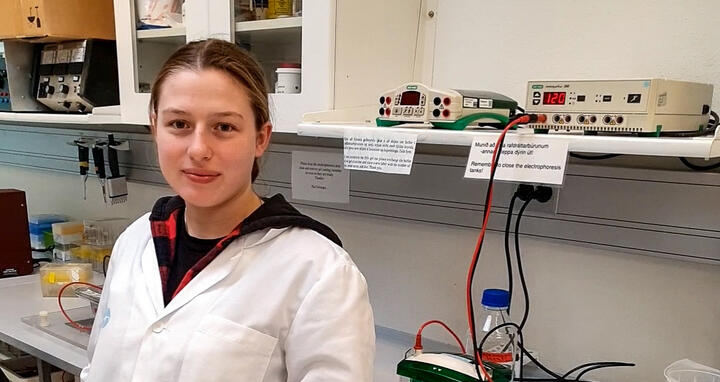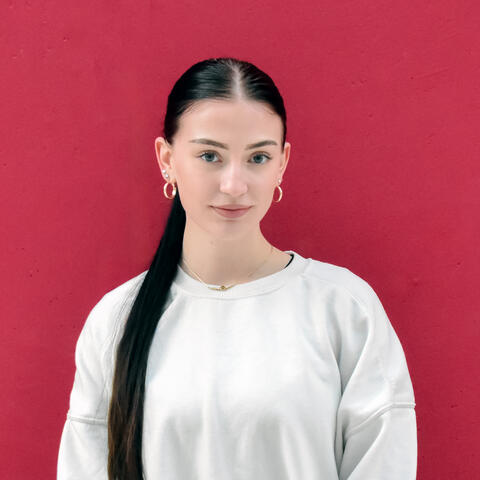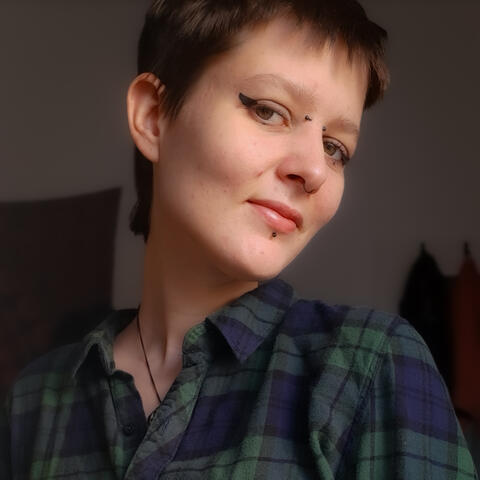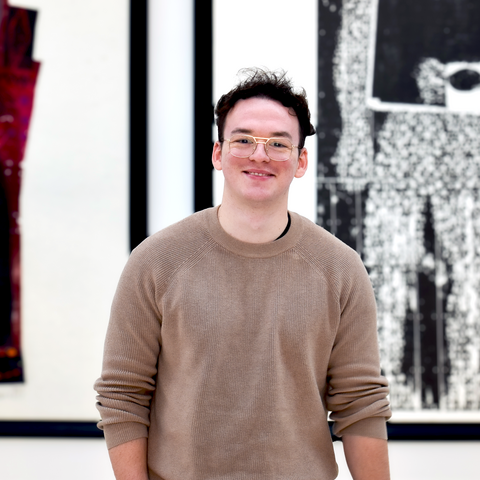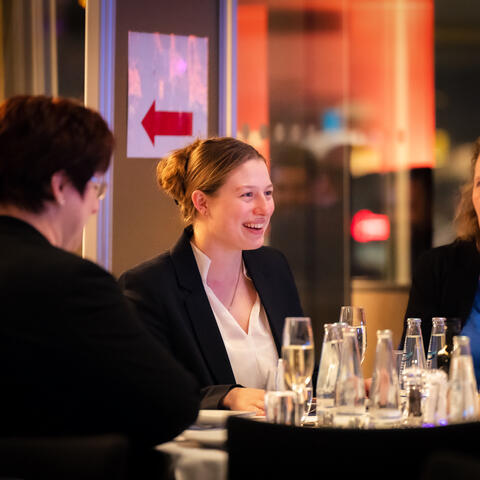Apply now: Vocational training in research
Merit Seeliger
German high school diploma – and then what? Merit Seeliger was uncertain and decided to first train as an office management specialist. In October 2023, she started her apprenticeship at the Max Delbrück Center in the Online Team of the Communications Department. Among other things, Merit helps with web design and keeping the website up to date. She likes the "all-round package" at the Max Delbrück Center, such as the relaxed campus atmosphere. Once a week, Merit attends an English course specifically for trainees. "I'm happy about that because the English taught there is more advanced than at school," she says.
Following her time with the communications team, Merit will work in other departments at the institute, including purchasing and the secretariat of a research group. After completing her training, she plans to decide whether she would like to study, possibly while working. So far, Merit says she has "learned a lot for life: I find it particularly exciting to see how real teamwork functions and how to achieve something together."
"I like practical work."
Nilla Tedaldi
Nilla Tedaldi fell in love with the profession of animal caretaker when she worked in an animal shelter for a while after leaving school. As the young Swiss woman knew that she wanted to go abroad, she looked for a suitable apprenticeship in Berlin and came across a posting from the Max Delbrück Center.
"I found the profession of animal caretaker in research particularly interesting because it's an area you can't easily look into," says Nilla. Since August 2023, she has been caring for the mice in the animal facilities on the Buch campus, keeping the laboratory rooms and equipment, as well as the animals' enclosures clean, feeding and watering the rodents, and checking on their health. Nilla also takes care of documentation, recording birth and death dates and everything else that happens with the animals. And she keeps the researchers updated. She doesn’t plan to study further after completing her traineeship. "I like practical work. That’s why I can see myself staying in this important and exciting profession," says Nilla.
“I find it exciting to be involved in discoveries.”
Tobias Lehmann
At university, Tobias Lehmann quickly realized that everything was “too theoretical” for him. So, he dropped out of his biotechnology studies after one semester and applied to the Max Delbrück Center in 2021 to train as a biology laboratory technician. "I liked the idea of delving deeply into several subject areas. I also found it appealing to work directly in research and be involved in new discoveries," says Tobias.
He started his training in Dr Mina Gouti's group, where he learned how to cut tissues and identify proteins. "I love working with cell cultures. There are many different cell types and cell networks, from which we can try to grow organoids. They are fed every two days, a bit like a pet," reports Tobias. At the same time, you have to work "super meticulously" and ensure that everything is sterile – a challenge of the kind Tobias appreciates. His favorite experiment: staining organoids with antibodies. "You can take beautiful pictures during the analysis," says the trainee. Since November 2023, he has also been involved as a youth and trainee representative at the Max Delbrück Center: "I really enjoy exchanging ideas with other trainees, supporting them with questions, or being a spokesperson for them."
"We trainees really pushed each other."
Best trainee biology lab technician 2023 in Berlin and Brandenburg: Anabel Golz at the Chamber of Industry and Commerce (IHK) reception.
Anabel Golz has already completed her training as a biology laboratory technician. As a child, she learned how fascinating it is to look through a microscope from her grandmother, who was a medical-technical assistant in a clinic and took her granddaughter to work a few times. This childhood memory made it easier to choose a career after graduating from high school. In 2020, Anabel began her training as a biological laboratory technician at the Max Delbrück Center.
Working in two research groups, she learned how to analyze the tissue of tumors and their interaction with T-cells. Additionally, she could perform experiments in the teaching lab, where she learned typical laboratory activities like cell culture experiments and bacteria cultivation.
"What I particularly liked about the apprenticeship was the variety and our great team of trainees. We supported and pushed each other a lot," she reports. It paid off. In 2023, the Chamber of Commerce and Industry honored Anabel as the best trainee biology laboratory technician in Berlin. Following the apprenticeship, she is now working on the genetics of allergies in Professor Young-Ae Lee's group for one year.
Text: Wiebke Peters

